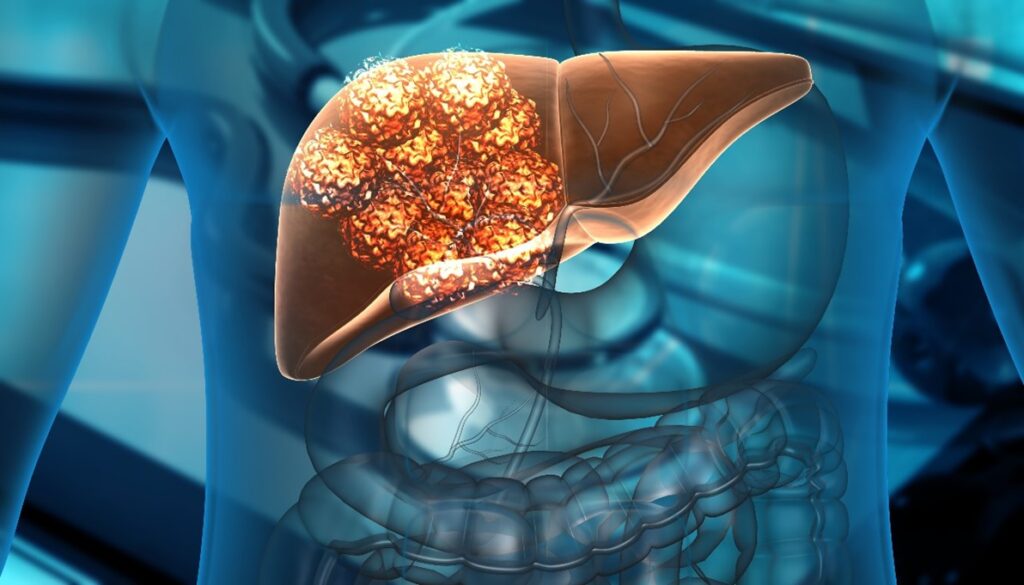Liver cancer involves primary tumors, which start in the liver, and secondary tumors, which spread from other areas.
Although it constitutes about 2% of cancers in the U.S., the prevalence is higher in undeveloped countries due to infectious hepatitis.
The liver performs vital functions such as filtering blood, removing toxins, and metabolizing substances.
Primary liver cancer predominantly affects men twice as often as women, usually around the age of 67.
Types of Liver Tumors
Liver tumours can be benign or malignant.
Common benign tumours include hemangiomas, hepatic adenomas, and cysts, which generally do not require cancer treatments but may need surgical removal if symptomatic.
The primary focus for liver cancer is hepatocellular carcinoma (HCC), the most common type of liver cancer.
Understanding the specific type of tumor is crucial for appropriate treatment and prognosis.
Causes and Risk Factors
Liver cancer often develops in livers damaged by
- Alcohol misuse
- Chronic hepatitis B or C infections
- Hemochromatosis
- Cirrhosis
Over half of those diagnosed with liver cancer have cirrhosis, mainly due to alcohol abuse.
Other risk factors include
- Obesity
- Fatty liver disease
- Exposure to carcinogens like aflatoxins
- Certain chemicals
- Smoking
Genetic conditions and hormonal imbalances also play roles, with men and individuals with a history of anabolic steroid use or diabetes at increased risk.
Screening and Diagnosis
Screening is recommended for those with known risk factors such as cirrhosis or chronic hepatitis infections.
Techniques such as ultrasound exams, blood tests for alpha-fetoprotein (AFP) levels, and CT or MRI scans are commonly used to identify tumors at an early stage, facilitating timely and effective treatment interventions.
Prevention and Early Detection
Preventing liver cancer involves managing risk factors where possible—this includes reducing intake of alcohol, balancing a healthy weight, and getting vaccinated against hepatitis B.
Regular screenings and monitoring for those at high risk, such as individuals with chronic liver diseases or a family history of liver cancer, are vital for early detection and effective treatment.
Treatment for Liver Cancer:
It may include chemotherapy, using heat to destroy the cancer (thermal ablation), targeted medicines, and radiotherapy and surgery.
Surgery is a key treatment for liver cancer, especially if detected early. The type of surgery depends on the cancer’s size, location, and spread:
Types of Surgery:
- Partial Hepatectomy: Removes the cancerous part of the liver.
- Total Hepatectomy with Liver Transplant: Removes the entire liver, replaced with a donor liver.
Considerations:
Suitable for small, localized tumors.
Recovery is lengthy; involves managing side effects and dietary changes.
Regular check-ups and scans are essential during and after treatment.
Early Detection Saves Lives: Contact your healthcare provider to discuss liver cancer symptoms and screening tests.


